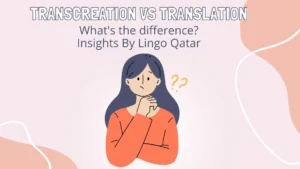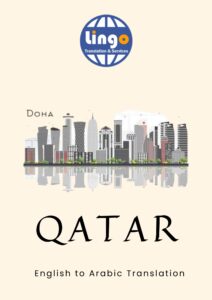Calculating the Cost: How Much Should I Pay for Translation Services?
In today’s increasingly globalized world, the demand for professional translation services is on a perpetual rise. Whether your business wants to venture into a new international market, produce multilingual user guidance, or publish research papers for a global audience, bridging the language gap is a critical need. However, understanding the pricing of translation services can be a bit of a labyrinth. While many individuals and businesses require these services, they often wonder: “How much should I pay for translation services?”
The complexity in understanding the pricing for translation services comes from the diverse factors that impact the cost. This article will explore those key factors, including language pair, complexity and subject matter, turnaround time, qualifications of the translator, proofreading and editing needs, and the translation company’s reputation and service quality.
Factor 1: Language Pair
One of the most prominent factors that affect the cost of translation services is the language pair or language combination. This refers to the source language (the original language of your document) and the target language (the language into which you want your document translated).
Translation services involving common language pairs such as English-Spanish, English-French, or English-Chinese often cost less due to the abundance of translators available. On the other hand, niche or less common languages often command a higher price due to the smaller pool of translators or the difficulty of the language itself.
Factor 2: Complexity and Subject Matter of the Text
The nature of the document to be translated also dramatically influences the cost. Suppose the text is general and does not involve technical terminology or specialized field knowledge (like a personal letter or a blog post). In that case, the cost will typically be on the lower end. Conversely, if the source text is technical, legal, medical, or scientific, the translation services might cost more.
Technical documents require translators with advanced degrees or experience in the given field. These experts not only translate the language but also the industry jargon, regulatory standards, and cultural sensitivities tied to the content. For this reason, hiring them usually costs more than hiring translators for general content.
Factor 3: Turnaround Time
Rapid translation or a demanding deadline can increase the cost of translation services. If urgent delivery is required, translators might need to work beyond their regular hours or capacity to meet the deadline. Consequently, rush jobs often come with a premium price. Therefore, planning and allowing a reasonable time for translation can help in managing the costs.
Factor 4: Qualifications of the Translator
Experienced, certified, or specialized translators often charge higher prices as compared to those with less experience or without any certifications. If the nature of your document requires specialized subject knowledge or if it is for official use (like legal or immigration documents), you may need to hire a qualified and certified translator, which generally involves a higher cost.
Factor 5: Additional Services: Proofreading and Editing
The translation process doesn’t merely involve converting words from one language to another; it requires conveying the exact meaning of the source text in the target language. This requires an intricate language command cultural knowledge and often requires proofreading and editing services to ensure the quality of the translation.
Translation companies typically offer four levels of service, ranging from translation only, translation and proofreading, translation, proofreading, and editing, to localization services. Each successive level of service demands higher expertise and incurs additional costs.
Factor 6: Reputation and Service Quality of the Translation Company
Lastly, the reputation and quality of service offered by the translation company play crucial roles in determining the cost. Renowned companies with a proven track record of high-quality translations often charge more than smaller or lesser-known translation services. While opting for cheaper services may save some money upfront, the potential inaccuracies and misunderstandings in translation could lead to higher costs in the long run.
So, How much should you pay?
Translation services usually have a per-word pricing model, and the cost ranges from Qatari Riyal 0.04 to Qatari Riyal 0.20 per word, depending on the abovementioned factors. On average, translation services for non-technical texts in common languages range from Qatari Riyal 0.10 to Qatari Riyal 0.15 per word. However, for specialized, certified translations or translations involving less common languages, the cost can escalate to the higher end of the scale, i.e., Qatari Riyal 0.15 to Qatari Riyal 0.20 per word.
A quote for your translation project would help you get a better cost estimate. Most professional translation services provide free quotes based on language pairs, document complexity, turnaround time, and additional services required.
In essence, understanding the factors affecting the cost of translation services can significantly aid your buying decision. Remember that translation services are not a place to skimp on costs; a high-quality, accurately translated document can make a world of difference in professional contexts, saving you from potential misunderstandings and misinterpretations that could lead to disastrous consequences.





